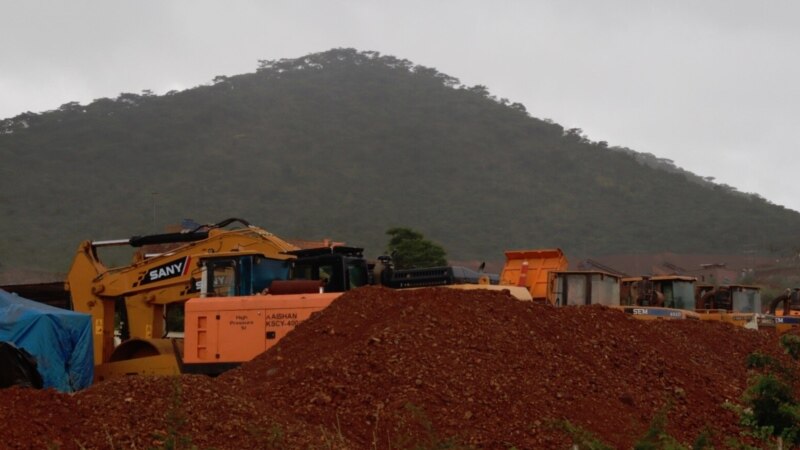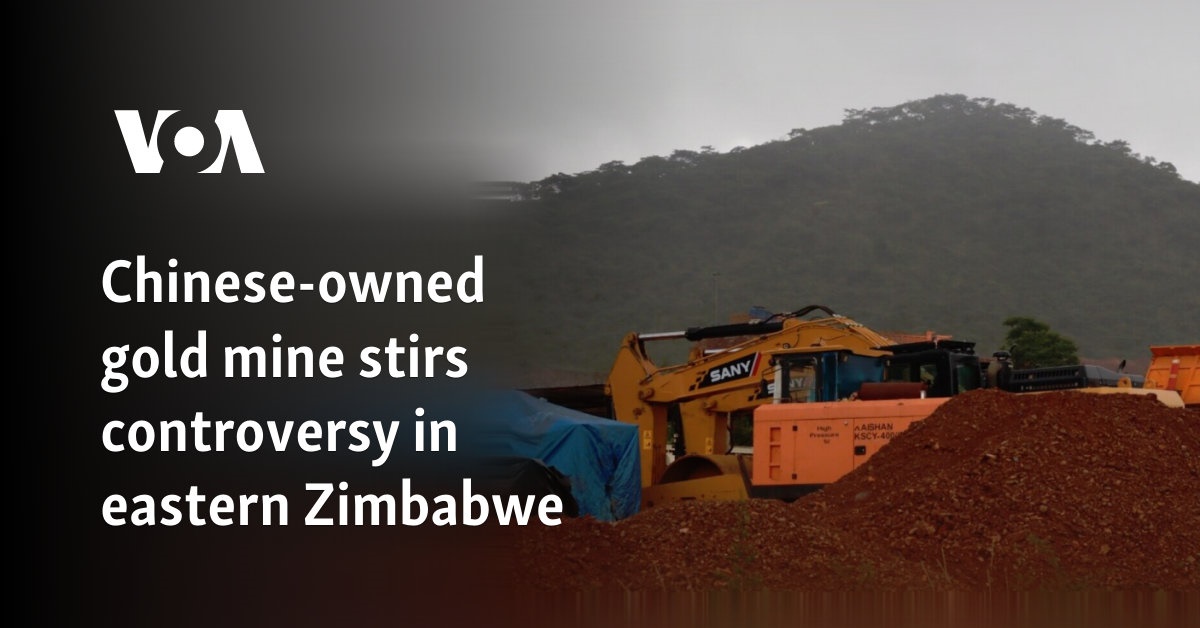
Government officials in Zimbabwe are investigating a Chinese mining company that has been operating a gold mine in the east of the country since at least 2021. The investigation comes as residents have expressed concerns about the impact on health and the environment.
The company in question is Sino Africa Huijin Holdings, which is accused of serious environmental destruction and community harm. Its gold exploration work is taking place in an area known as Premier Estate in the Mutasa district of Manicaland.
Villagers and community groups have complained about the explosion at the mine. Nearby residents have reported widespread ecological damage, including the destruction of a mountain and displacement of wildlife. They also say that houses have suffered structural damage due to the shock of the explosions.
Residents complain of dust pollution and possible contamination of water sources due to alleged leaching of cyanide. Cyanide leaching is a method of extracting gold from ore that can pollute water resources.
Adding to these concerns, China Africa has been accused of forging community signatures on its environmental impact assessment document, raising questions over the transparency and legality of their operations.
Complaints led the government to shut down mine operations twice in 2024. However, mining has resumed in the last two months.
China Africa Ishewedenga Moyo, one of 30 residents who live within about 300 meters of the Huijin mine, told VOA, “We are between a rock and a hard place. If it’s possible, let them compensate us and relocate us.” Do it because it’s not attractive anymore.” In December.
“Vibrations and noise generated by mining explosions are disrupting wildlife habitats and ecosystems, damaging biodiversity and causing cracks in our homes,” Moyo said.
Government ordered suspension
The Manicaland Joint Command Task Force, made up of multiple government entities, twice ordered the temporary closure of China Africa Huijin’s gold mining operations. Officials say the shutdown was implemented to ensure the mine meets all necessary requirements.
The first suspension occurred in October and lasted two weeks. China Africa Huijin promised to improve the situation and was allowed to resume operations. Then, the task force ordered a second closure of the mine in mid-November.
James Kurauon, traditional chief of the Mutasa district, told VOA in December. 11 that authorities forced China Africa Huijing to cease operations each time because the company “failed to address significant concerns raised by the local community.”
“The temporary closure was due to concerns that include severe air pollution, destructive blasting activities affecting local homes and the company’s failure to meet its corporate social responsibility obligations,” Mutasa said in recent comments. ” Mining officials and community members will meet in a few weeks to discuss the way forward.
mining compliance
Mining operations resumed on 25 November at the conclusion of discussions between government officials, community leaders and company representatives.
Daniel Panganai, current Human Resources Manager of China Africa Huijin, joined the discussion. He told VOA in mid-December that the company “has complied with all the requirements outlined in writing, but I cannot provide further details at this time.”
Manicaland Minister of State Mishek Mugadza also said in December that China Africa Huijin was committed to following all mining and environmental regulations. He said the Chinese company has acted on its social responsibility obligations by donating to a local hospital and digging a well to provide water to a local school.
The government is closely monitoring the company’s operations and some families have already received full compensation for losses, Mugadza said. He further said that the company is obliged to compensate all the affected residents.
Chinese investment in Zimbabwe’s mines
The dispute surrounding the China Africa Huijin mine is no different, according to a September report by the Center for Natural Resource Governance, or CNRG, a Harare-based community rights organization.
Reportwhich assessed the impact of Chinese investment on Zimbabwe’s mining industry found that “Chinese mining enterprises have led to massive environmental degradation, disregard for the cultural rights of host communities, and, in many cases, the country’s labor “Laws are often violated.” “With apparent impunity.”
According to the report, Chinese investors control an estimated 90% of Zimbabwe’s mining industry.
“In 2023 alone, 121 investors contributed $2.79 billion to China’s investments in Zimbabwe’s mining sector,” CNRG executive director Farai Maguvu was quoted in a post on the organization’s website.
Separately, another area resident criticized the government’s response to mining.
“There are times when high volume explosives are used in the mine, and there will be tremors,” said Thobekile Mhenziwamukuru, a resident of the area.
“When we call government officials about the crisis, they always go straight to the China Mine offices alone without any community leaders, then they come and address us, just saying they will do less next time. Will use explosives of magnitude and now we know this is their cash cow now.
He concluded, “Even in the case of mine closure and reopening, instead of resolving our grievances, there is no fairness in everything as money is exchanged to slow down progress. “It is being done and we hope that higher offices in the government will come to our rescue.”
Maguvu accused local lawmakers of corruption, saying, “Instead of enforcing the law, they enforce the law by forcing them to close, demanding bribes to reopen, and then coming back to close them again with more bribes.” They are taking advantage of this illegality by demanding Rs.
Despite repeated phone calls and visits to the offices of government stakeholders, including the Ministry of Mines and the Environmental Management Agency, to address these allegations, VOA received no response.
“This cycle continues while the environment is being sacrificed,” Maguvu said.






Leave a Reply